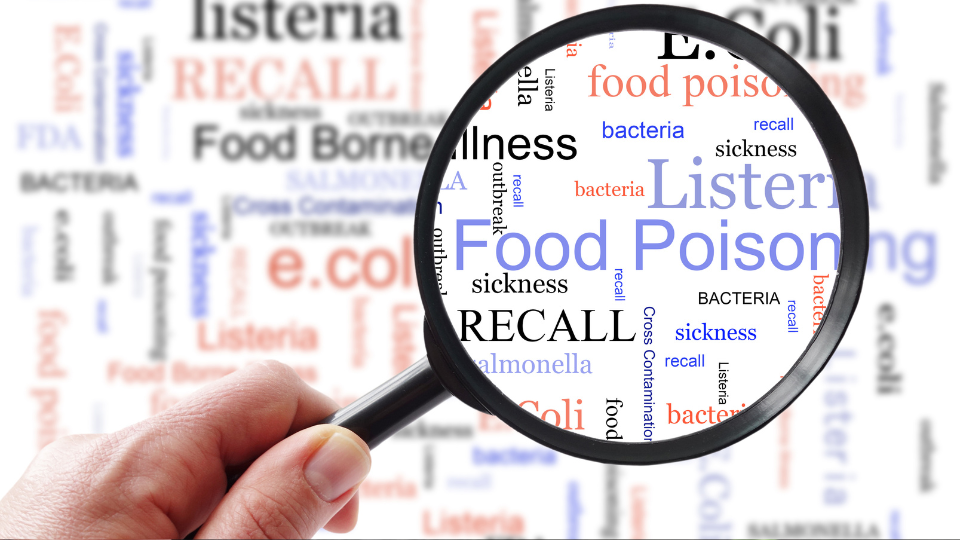Food poisoning is a common ailment that can strike anyone at any time. It often results from consuming contaminated food or beverages, leading to symptoms that can range from mild discomfort to severe illness. When faced with food poisoning, many individuals wonder whether they should seek urgent care or if they can manage their symptoms at home. This article will explore the signs that indicate the need for medical attention, the role of urgent care facilities, and how telehealth services like Doctronic can provide immediate assistance.
Understanding Food Poisoning
Food poisoning occurs when harmful bacteria, viruses, or parasites contaminate food or drinks. Symptoms can vary widely, depending on the type of contaminant and the individual's health. Common symptoms include nausea, vomiting, diarrhea, abdominal cramps, and fever. While many cases of food poisoning resolve on their own, knowing when to seek medical help is crucial.
 Common Symptoms of Food Poisoning
Common Symptoms of Food Poisoning
Symptoms of food poisoning typically manifest within hours or days after consuming contaminated food. Some of the most common symptoms include:
Nausea and vomiting
Diarrhea, which may be watery or bloody
Abdominal pain and cramping
Fever and chills
Headaches and muscle aches
While these symptoms can be distressing, they often resolve within a few days. However, certain signs may indicate a more severe condition that requires urgent care. It is important to note that the severity of symptoms can also depend on the specific pathogen involved. For instance, infections caused by Salmonella or E. coli can lead to more serious complications, such as kidney failure, particularly in vulnerable populations like young children and the elderly. Understanding the underlying cause of food poisoning can help in managing symptoms more effectively.
When to Seek Medical Attention
It's essential to recognize when food poisoning may require medical intervention. Seek urgent care if you experience any of the following:
Severe dehydration, evidenced by dry mouth, dizziness, or decreased urination
High fever (over 101.5°F or 38.6°C)
Blood in vomit or stool
Prolonged vomiting that prevents you from keeping liquids down
Symptoms lasting more than three days
In these cases, urgent care facilities can provide the necessary treatment, such as IV fluids for dehydration or medications to alleviate symptoms. However, before heading to an urgent care center, consider the option of telehealth services like Doctronic, which can offer immediate medical advice from the comfort of your home. Additionally, understanding the source of food poisoning can be beneficial not only for your recovery but also for public health. Reporting cases to local health departments can help track outbreaks and prevent further cases, as well as raise awareness about safe food handling practices. This proactive approach can empower individuals to make informed choices about their food consumption and safety.
The Role of Urgent Care Facilities
Urgent care centers are designed to address non-life-threatening medical issues that require immediate attention. They often serve as a convenient alternative to emergency rooms, providing quicker service for conditions like food poisoning. Understanding what to expect at an urgent care facility can help you make an informed decision.
What to Expect at Urgent Care
When visiting an urgent care center for food poisoning, patients can expect a streamlined process:
Assessment: A healthcare professional will assess your symptoms and medical history to determine the severity of your condition.
Testing: Depending on your symptoms, tests may be conducted to identify the cause of your food poisoning.
Treatment: Treatment may include rehydration, medications to control nausea or diarrhea, and guidance on diet and care at home.
While urgent care centers can provide valuable services, they may not always be necessary for mild cases of food poisoning. In such instances, Doctronic can offer personalized advice and treatment recommendations without the need for an in-person visit.
Benefits of Telehealth for Food Poisoning
Telehealth has become increasingly popular, especially in the wake of the COVID-19 pandemic. For individuals experiencing food poisoning, telehealth services can provide several advantages:
Immediate Access: Patients can connect with healthcare professionals quickly, receiving advice and treatment recommendations almost instantly.
Convenience: Telehealth allows patients to consult with doctors from the comfort of their homes, eliminating the need for travel and waiting times.
Cost-Effective: Doctronic offers affordable consultations, often at a fraction of the cost of urgent care visits.
By utilizing telehealth, patients can receive personalized care tailored to their specific symptoms and health history, ensuring they get the most appropriate treatment. This approach not only saves time but also helps in reducing the spread of infections, as patients with contagious conditions can seek help without exposing others in a waiting room.
Moreover, telehealth platforms often provide access to a wider range of specialists who can offer insights into dietary concerns and preventive measures for future incidents of food poisoning. This holistic approach to healthcare promotes not only immediate relief but also long-term wellness strategies, empowering patients to make informed decisions about their health. With the integration of technology in healthcare, patients can now track their symptoms and communicate them effectively to their providers, ensuring that they receive the best possible care tailored to their individual needs.
Managing Food Poisoning at Home
For many individuals, food poisoning symptoms can be managed effectively at home. Understanding how to care for oneself during this time can alleviate discomfort and promote recovery.
Hydration is Key
One of the most critical aspects of managing food poisoning is staying hydrated. Diarrhea and vomiting can lead to severe dehydration, which can be dangerous. Here are some tips to maintain hydration:
Drink clear fluids such as water, broth, or electrolyte solutions.
Avoid caffeine and alcohol, as they can worsen dehydration.
Take small sips frequently instead of large amounts at once.
In severe cases of dehydration, telehealth services can guide you on when to seek further medical attention or visit an urgent care facility. Additionally, incorporating oral rehydration solutions (ORS) can be beneficial, as these are specifically formulated to replace lost fluids and electrolytes. You can easily make a homemade ORS by mixing water, salt, and sugar, which can help restore the balance of electrolytes in your body.
Dietary Recommendations
When recovering from food poisoning, dietary choices play a significant role in recovery. Initially, it may be best to stick to bland foods that are easy on the stomach. Consider the following:
Start with clear liquids and gradually introduce bland foods such as toast, rice, or bananas.
Avoid dairy products, spicy foods, and fatty foods until recovery is complete.
Listen to your body; if a food causes discomfort, it’s best to avoid it.
Consulting with a healthcare professional through telehealth services like Doctronic can provide personalized dietary recommendations based on your symptoms. Furthermore, incorporating probiotics into your diet, such as yogurt or fermented foods, may help restore the natural balance of gut bacteria, which can be disrupted during food poisoning. However, it’s essential to introduce these foods gradually and ensure they are well-tolerated, as everyone's recovery process is unique.
Preventing Food Poisoning
While food poisoning can happen to anyone, there are several preventive measures that can significantly reduce the risk of contamination. Understanding these measures is crucial for maintaining health and well-being.
Safe Food Handling Practices
Adopting safe food handling practices can help prevent foodborne illnesses. Here are some essential tips:
Always wash your hands with soap and water before handling food.
Cook foods to the appropriate temperatures to kill harmful bacteria.
Store perishable foods in the refrigerator and avoid leaving them at room temperature for extended periods.
By following these practices, individuals can significantly reduce their risk of food poisoning and ensure their meals are safe to consume. Additionally, using separate cutting boards for raw meats and vegetables can further minimize cross-contamination. It's also beneficial to regularly clean kitchen surfaces and utensils with hot, soapy water, as this helps eliminate any lingering bacteria that may pose a risk. Remember, a little extra diligence in the kitchen can go a long way in safeguarding your health.
Awareness of Food Sources
Being aware of the sources of food and their safety can also help prevent food poisoning. Consider the following:
Purchase food from reputable sources, and check for expiration dates.
Be cautious with raw or undercooked foods, especially meats and seafood.
Stay informed about food recalls and safety alerts.
Educating oneself about food safety can go a long way in preventing foodborne illnesses. Furthermore, understanding the importance of local food sourcing can enhance your food safety practices. By choosing local farmers' markets or community-supported agriculture (CSA) programs, you can often obtain fresher produce that has not been subjected to long transportation times, which can compromise quality and safety. Additionally, engaging with local producers allows you to ask questions about their farming practices, ensuring you are making informed choices about the food you consume. This proactive approach not only supports your health but also fosters a stronger connection to your community and the food system.
 Preventing and Responding to Food Poisoning Effectively
Preventing and Responding to Food Poisoning Effectively
Food poisoning is a common yet often manageable condition. Understanding when to seek medical attention, the role of urgent care, and the benefits of telehealth services like Doctronic can empower individuals to make informed decisions about their health. While many cases resolve on their own, knowing the signs that require urgent care can save lives. By adopting safe food handling practices and being aware of food sources, individuals can significantly reduce their risk of food poisoning in the future. In the event of symptoms, consider utilizing telehealth services for immediate medical advice and support.
Experience the Future of Healthcare with Doctronic
If you're experiencing symptoms of food poisoning and need immediate, personalized medical advice, Doctronic is here to help. With our cutting-edge AI technology, you can receive a free AI doctor visit on our website, getting you the answers and treatment recommendations you need in seconds. For more in-depth care, our telehealth video visits connect you with our doctors 24/7, no matter where you are in all 50 states, for less than $40. Join the 10 million people who have already experienced the smarter, faster, and more personal healthcare revolution. Skip the line. Talk to an AI Doctor Now, for free.



 Common Symptoms of Food Poisoning
Common Symptoms of Food Poisoning Preventing and Responding to Food Poisoning Effectively
Preventing and Responding to Food Poisoning Effectively